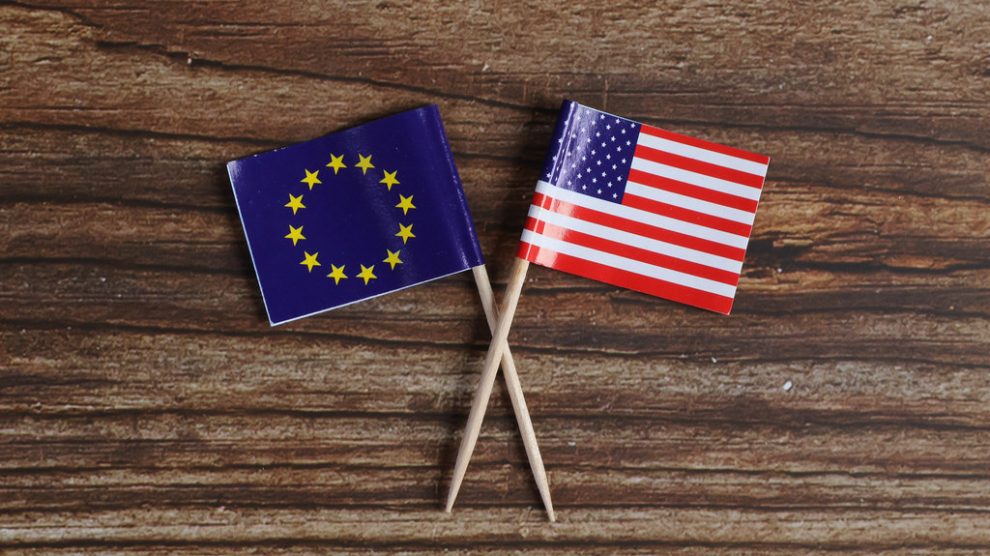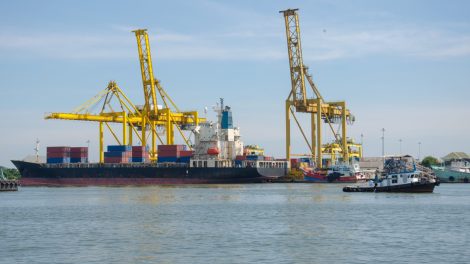The Transatlantic Trade and Investment Partnership, better known as the TTIP or Transatlantic Free Trade Agreement between Europe and the United States, is back on the Atlantic agenda. The German Finance Minister Christian Lindner signalled openness over an agreement that has been “frozen” for some years now, more at the behest of France and Germany than of the US.
In its noblest intentions, the TTIP would have served to align the European and US economies, reducing duties, homologating regulatory standards and promoting trade on the transatlantic axis. As AmCham Italy, we had always upheld its importance, even when it was being described as “obsolete and no longer relevant”.
However, since the beginning of the war in Ukraine, there is no such thing as a dead end. This is an unprecedented historical acceleration in recomposing the Western world around its founding principles. I am fully convinced that the current geopolitical framework dictates the need to resurrect a free trade agreement between countries that share and promote the stainless values that underpin our societies, which believe in freedom and democracy.
As always, in times of darkness, the US stands by Europe. From Brussels, President Joe Biden announced that the US would support the Ukrainian people by donating one billion dollars and taking in 100,000 refugees. In the silence and industriousness of which they are capable, how can we forget the precious support, amounting to 100 million dollars, that our country received during the onset of the pandemic.
Moreover, AmCham Italy – in agreement with the US Diplomatic Mission in Italy and the Italian Diplomatic Mission in the US – has coordinated and directed generous financial and in-kind donations made by American corporations present in Italy, an extraordinary expression of solidarity conveyed through nearly 50 million euros.
This shows that sharing values translates into economic sharing. After all, the transatlantic bloc is worth 16 million jobs, 6 trillion dollars worth of goods and services traded every year and one-third of global GDP. We Italians still have a long way to go, although the situation has improved over time: since 2008, the year of the global financial crisis, American foreign direct investment in Italy has risen from 27.7 billion dollars to the current 31.1 billion.
Nevertheless, these figures are far too small compared to Italy’s main European competitors. Spain is at $38.5 billion, France at $91.2 billion and Germany at $162.4 billion (in addition to iconic investments such as the Tesla mega-factory just outside Berlin). Europe as a whole attracts around 60% of the US stock invested globally, more than three and a half times the amount allocated to the Asia-Pacific region. On the other hand, the growth of Italian FDI in the US has been astonishing, with its value rising from $19.5 billion (in 2008) to $31.6 billion (+62%).
The trade flow figures are better. Historically, the Italian figure has always been higher than the American one. Our export is worth 61 billion dollars (making the US our first non-European market) and mainly concerns machinery, motor vehicles, pharmaceuticals and food. That amounts to nearly a third of the import, which stands at 21.7 billion dollars. Both countries in 2020 recorded a drop of 13 to 16%, a figure that testifies to the importance and interconnection between the two economies even in the terrible year of Covid-19.
The war with Russia calls for new choices, an even more significant westward shift of the geopolitical centre of gravity, and consequently relaunching the TTIP. A new agreement would be even more mature due to the tragic period we are living through, as it would have to be redesigned to adapt it to the contingencies of this historical phase. However, as demonstrated several times since the advent of the pandemic and the Russian invasion of Ukraine, the Western bloc has been able to unite – even unexpectedly – in hard times.
Suffice it to say that within the G20 countries (which, in the light of the situation, should become G19 with the exclusion of Russia), no less than six would be included in the new TTIP: France, Germany, Italy, the United Kingdom, the US and – though not exactly a State – the European Union. Interestingly, three of these – France, the UK, and the US – are also permanent United Nations Security Council members.
Therefore, a strengthened transatlantic axis could allow us to respond rapidly to the needs of the moment. For instance, during the recent summit in Brussels, participants decided to increase shipments of liquefied natural gas from the US to Europe and invest in solutions to create clean and renewable hydrogen to increase energy and national economic security and reduce dependence on Russia, along with its negotiating power.
The Belgian summit also produced a major step forward in data sharing (55% of the world’s data flows are between the two sides of the Atlantic). This will facilitate $7.1 trillion a year in economic relations between the US and the EU, foster unprecedented protection for citizens’ privacy and security, improve the Privacy Shield framework, promote growth and innovation and help small and large companies compete on a global scale.
Here are a few examples that demonstrate the need to re-establish a renewed transatlantic alliance and rewrite – starting from the ashes of the now-archived TTIP – a geo-economic (and geopolitical) free trade agreement that would stimulate (and protect) the world’s leading commercial and economic bloc. In view of this communion of intentions, and so as to not define it with a cold acronym, it would be more appropriate to rename it “Transatlantic Pact for Growth and Employment,” highlighting the welfare features it could generate.
I believe that the time is ripe to formalise a new geo-economic and geopolitical horizon, to be translated into a new agreement that’s openly pro-Atlantic and pro-European, which would allow the West to remain a leading actor on the world stage (and the EU to have a say in the main strategic dossiers). In these times of unprecedented global challenges, which only together can we overcome, the understanding between Washington and Brussels is more important than ever to renew and increase the capital of trust that’s the foundation for common action in favour of security, a rules-based international order, genuinely sustainable development, the protection of human rights and unanimous condemnation of the Russian invasion of Ukraine.





